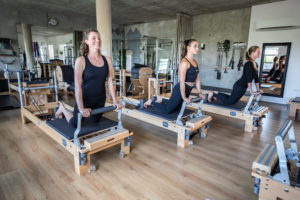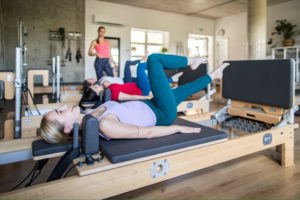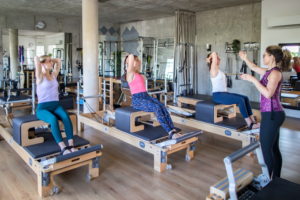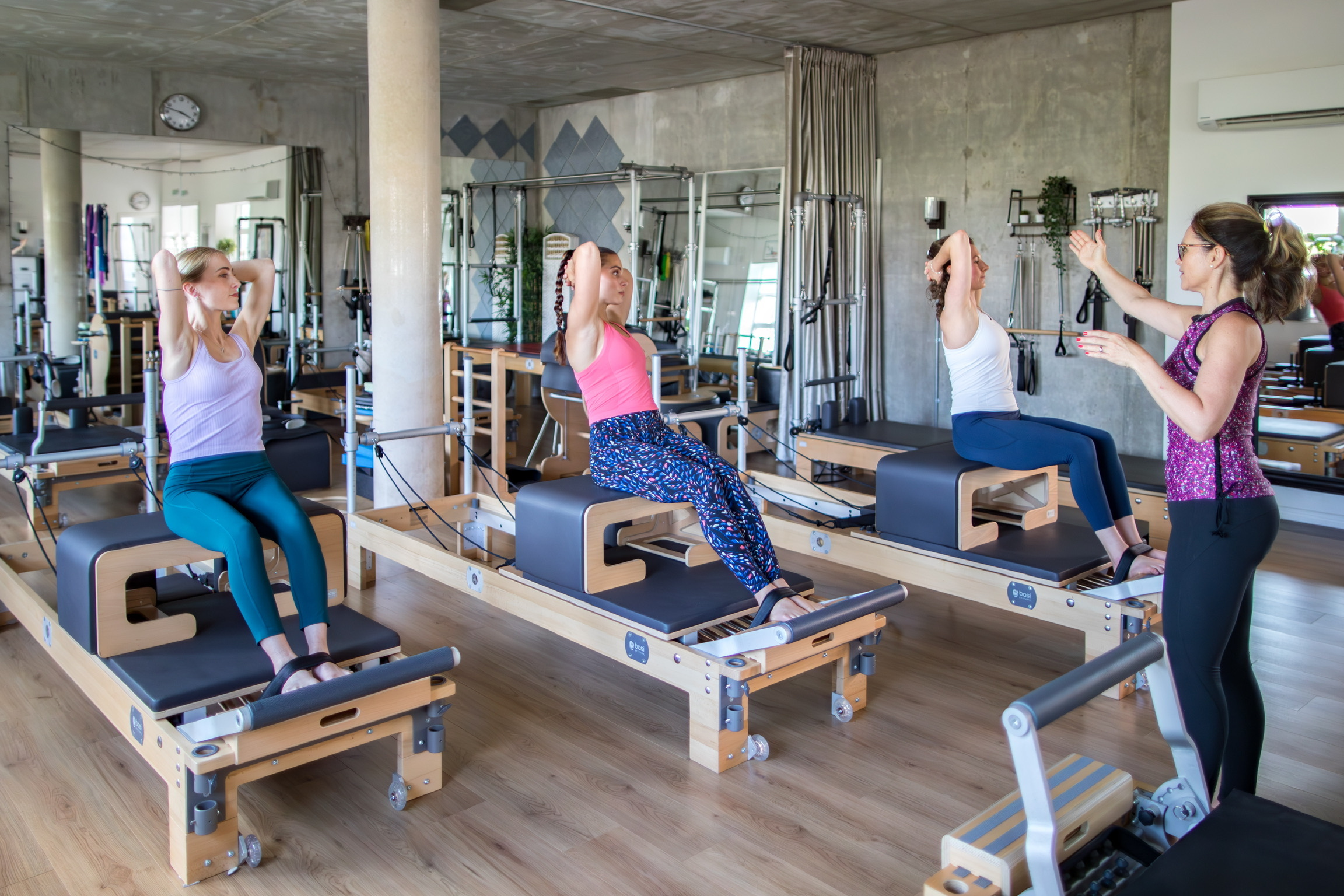Pilates has rapidly grown in popularity across London where there has been a boom in both boutique studios opening and larger gyms offering reformer classes. Reformer Pilates, which uses a specially designed piece of apparatus to provide adjustable resistance, is gaining traction because it offers a full-body and low impact workout that focuses on core strength, mobility and balance. This makes it appealing to a broad demographic, including those recovering from injuries, athletes looking to improve performance, and individuals looking for a change from mat-based Pilates or large group classes at the gym.

Whilst it’s great to see so many people embracing Pilates, the range of classes on offer can be a bit overwhelming. So how do you know which class is right for you?
If you’re completely new to Pilates, no matter how strong or fit you are, it’s definitely advisable to get a couple of private sessions in first – this will not only provide you with an assessment of your body and how it moves, but also will help you to become familiar with how the equipment works. Any good Pilates teacher should then be able to advise you on whether you’re suitable for classes immediately or following more 1:1 sessions.
We know Pilates can be expensive so if the cost of private sessions is an issue, then beginners classes are a great way to start. But, look out for small group classes, ideally no more than 10 people. If you have an injury or just need more time to become acquainted with the choreography and equipment, bigger group classes will be much harder to keep up with and the instructor won’t have time to check on everyone’s form.

There are other benefits to doing small group classes, you’re more likely to receive personalised instruction and attention. This can be a challenge in a large group class of up to 20 and only one instructor! The beauty of regularly attending the same small group sessions is that you can request what you want to focus on and you’ll get so much more out of each workout.
Attending small group classes means your instructor will get to know you and your body and will know how and when to challenge you. There may still be a range of abilities amongst those in your class but a good instructor will always provide options where needed. This can’t really happen in a large group class environment where it’ll typically be a one-size-fits-all approach. You are more likely to see progress over time this way as you’ll benefit from a more tailored programme.
There’s more focus on technique, like all Pilates, the practice requires precision and an instructor can really monitor your movement in a small group environment. Safety should also be a consideration, like much of the Pilates apparatus, if not used correctly it can be dangerous. If there’s 20 people in your class and you’re new to the reformer, you’re at risk of injuring yourself.

Finally, small group classes can feel a little more inclusive. Believe it or not, Pilates was not originally created with young bendy women in mind. Pilates is for every body and everyone stands to gain something from the practice.
At the end of the day, choosing the right Pilates workout for you should come down to your own preference, needs and budget. But we would urge you to see your choice as an investment in quality and long-term effectiveness.
Do you have any questions about starting reformer classes? Drop us a note below or get in touch at info@thepilatesclinic.com






